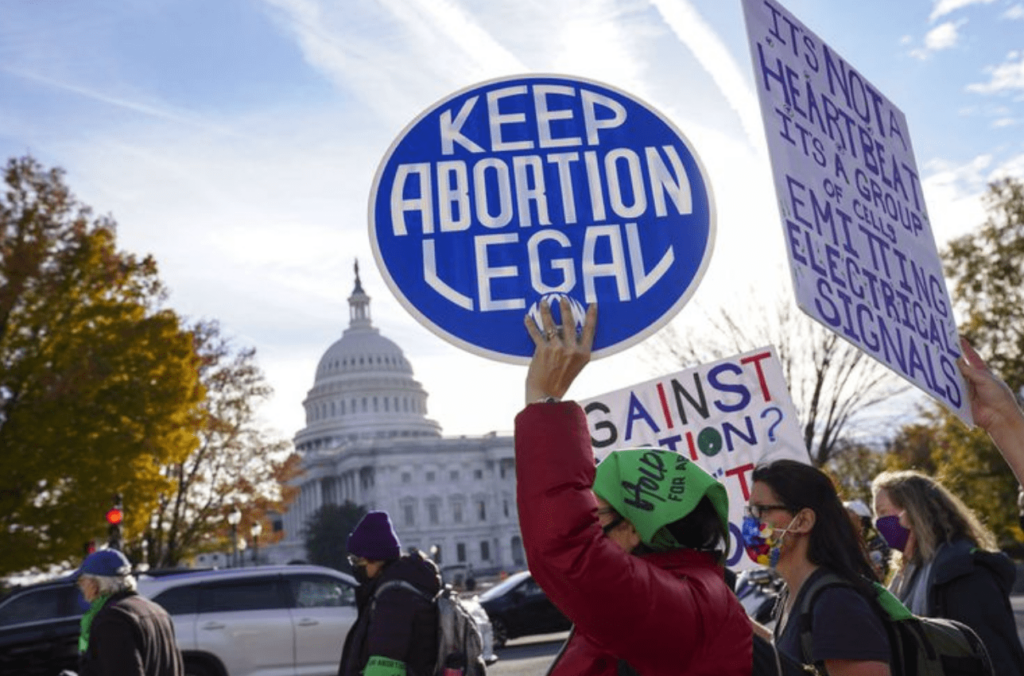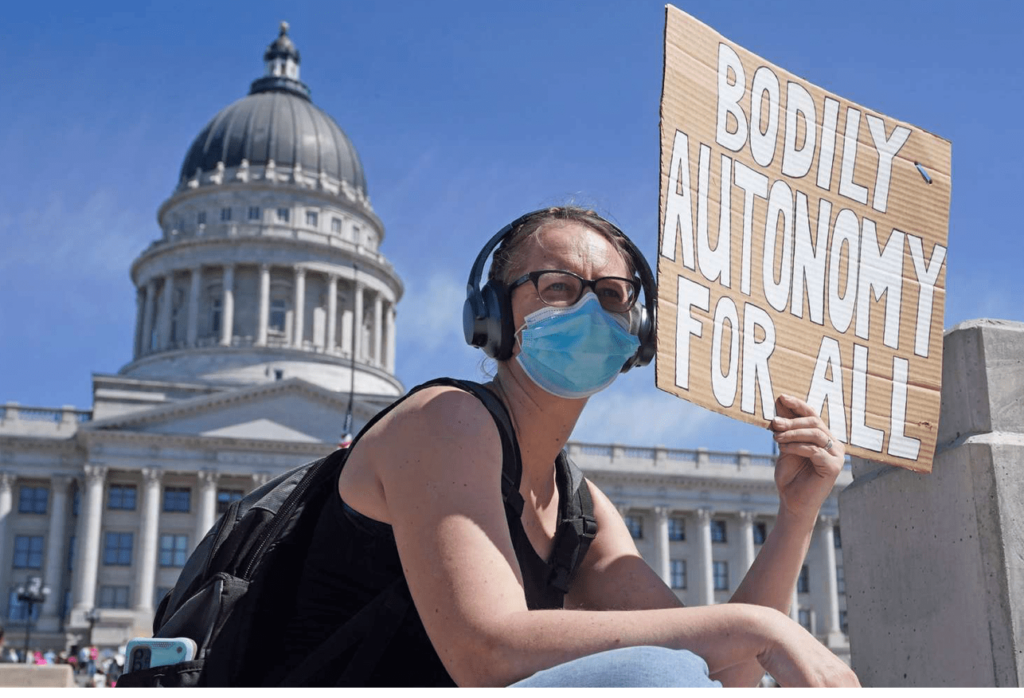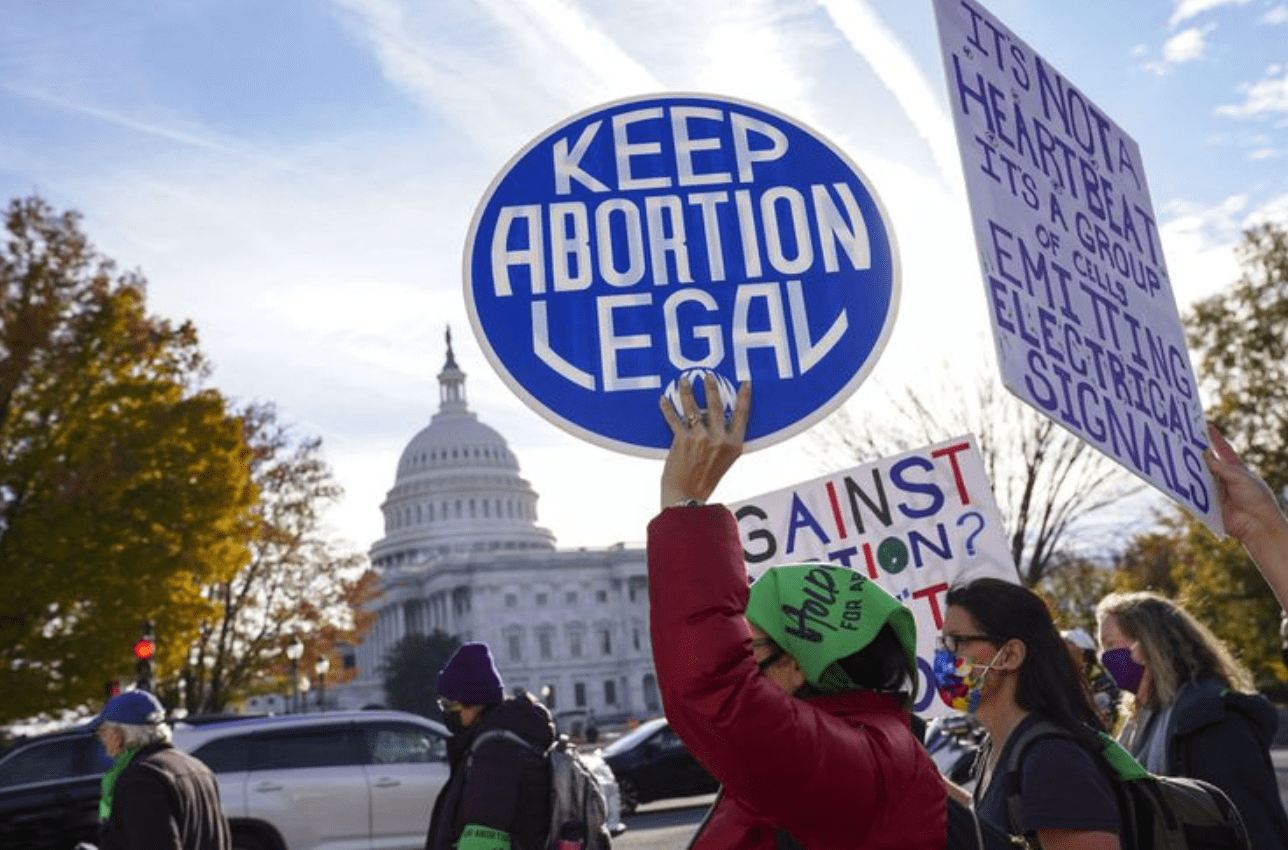According to recent polls, 61% of Americans disapprove of the Supreme Court’s decision to reverse “Roe v. Wade” one year after the decision.
Women’s March Participants at Jackson Women’s Health “Hold The Line For Abortion Justice” at the Supreme Court
One year has passed since Roe v. Wade, a significant Supreme Court ruling from 1973 that guaranteed women the right to an abortion in every state, was overturned.

With the June 24, 2022 judgement, which granted individual states the authority to determine whether to permit the surgery, over 50 years of precedent were overturned and the landscape of women’s reproductive rights were altered. Months-long nationwide protests were ignited by the decision.
Alabama, Arizona, Arkansas, Florida, Georgia, Idaho, Kentucky, Louisiana, Mississippi, Missouri, Nebraska, North Carolina, North Dakota, Oklahoma, South Dakota, Tennessee, Texas, Utah, West Virginia, and Wyoming are among the 20 states that have passed abortion-related legislation in the past year.
Most notably, according to Politico, Florida Gov. Ron DeSantis signed a measure prohibiting abortions after six weeks; however, the law won’t take effect until 30 days after the state Supreme Court rules on a legal challenge to the initial 15-week restriction. Abortions would only be permitted under the law if doing so would save the life of the pregnant woman. Furthermore, abortions from rape or incest-related pregnancies would be permitted up until 15 weeks of pregnancy, but only if the woman has documentation of a restraining order or police report.
Abortion bans are currently being challenged in court in seven of those states: Arizona, Indiana, North Dakota, Ohio, South Carolina, Utah, and Wyoming.
At the Utah State Capitol in Salt Lake City, a woman attends a protest for abortion rights. In response to a potential Supreme Court decision that could eliminate women’s access to an abortion, protesters are organizing nationwide. United States, Salt Lake City, Supreme Court Abortion Protests, May 14, 2022

Since Roe v. Wade was overturned, state laws have changed, which has resulted in a rise in demand for emergency contraception like Plan B One-Step, often known as the “morning after” pill, in the United States.
Over the past year, there has also been a notable rise in the demand for abortion drugs. Following the Roe v. Wade decision, companies that administer abortion pills reported an increase in website traffic and appointment requests, especially in states with “trigger” laws where abortion is already prohibited or severely limited.
Despite widespread restrictions on abortion, according to a recent Gallup poll, 61% of Americans disapprove of the Supreme Court’s decision to overturn Roe v. Wade. Additionally, a record-high 69% of Americans believe that abortion should normally be permitted during the first three months of pregnancy, and 52% believe that it is morally acceptable.
According to Gallup’s Lydia Saad, head of US social research, “this is a paradigm shift,” she told The New York Times. There aren’t many people who have an all-or-nothing viewpoint; there is still a lot of ambivalence. However, support for abortion rights has increased significantly since then and appears to be here to stay.
There are currently 20 states with abortion protections, and representatives from many of them, including California, New York, New Mexico, Minnesota, and Colorado, have even publicly invited women from states with abortion restrictions.





